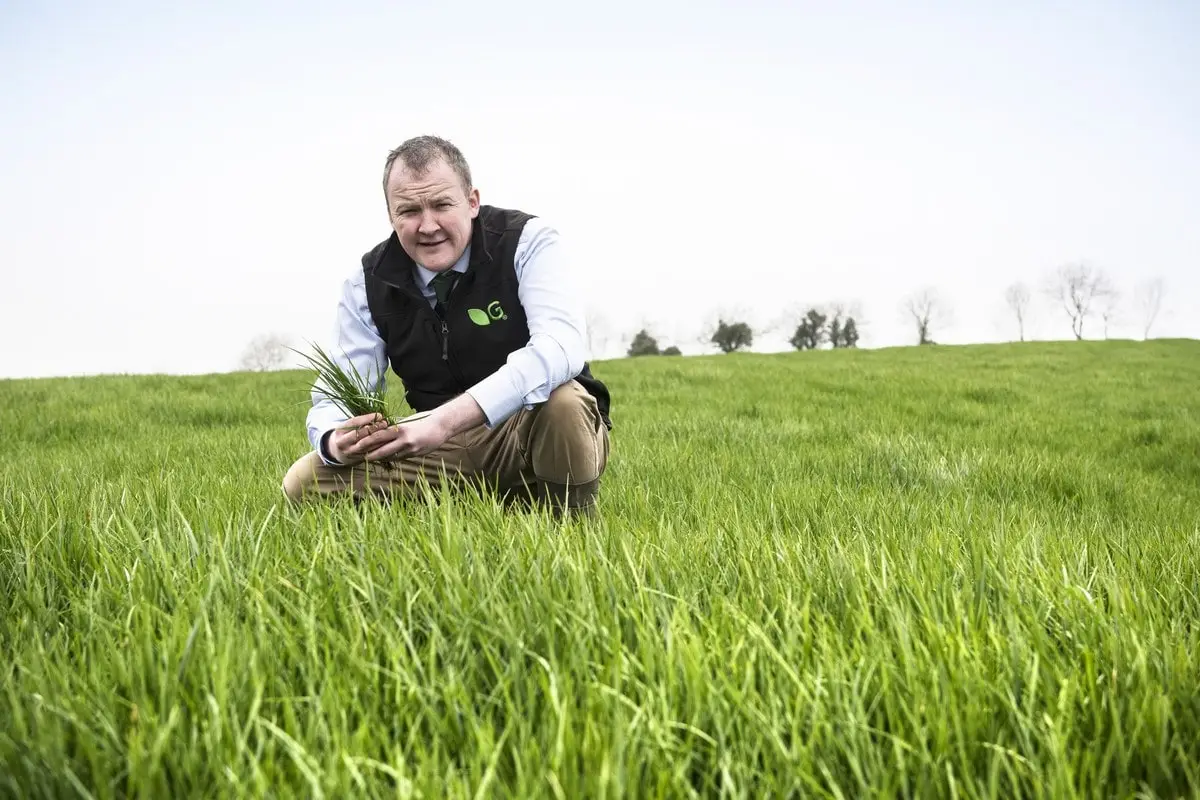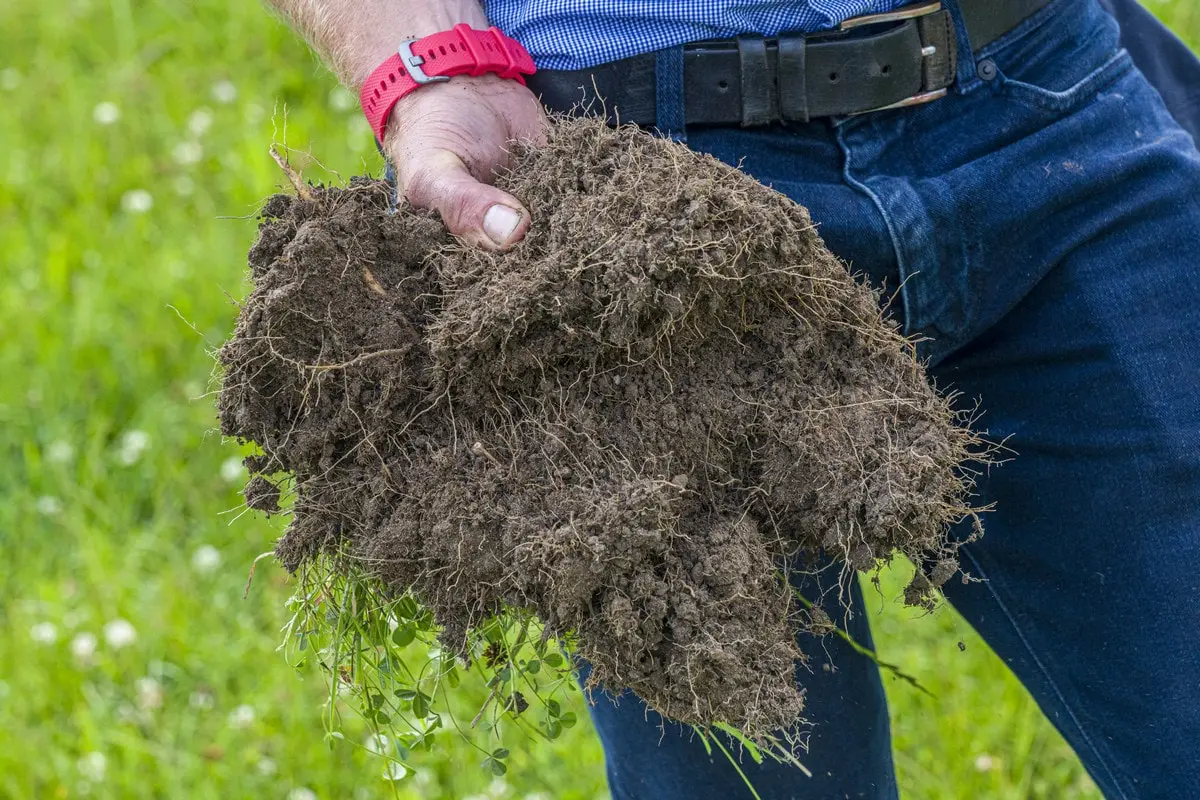At Germinal, we champion soil health because it underpins grassland farming success, helping support more productive and sustainable outputs. In Northern Ireland, David Little sees the potential of the Soil Nutrient Health Scheme (SNHS) and what this could do for farmers in the years ahead.
Soil health and nutrient use efficiency
Funded by the Department of Agriculture, Environment and Rural Affairs (DAERA), this £45 million scheme started in 2022 and will run until 2026 under the management of the Agri-Food and Biosciences Institute (AFBI).
Germinal Agricultural Product Manager David Little, who works part-time on his family’s beef farm near Loughbrickland and is highly experienced in grassland farming, outlines the benefits for SNHS as a participant himself.

“Healthy soil produces highly nutritious grass and forage, helping drive meat and milk production that’s less dependent on bought-in feed which carries a higher carbon footprint.
“For soils where pH and nutrient levels require correction, it’s vital that any lime, fertilisers, slurry, or farmyard manure are applied in optimal quantities.
“When these resources are overused, it doesn’t just raise your input costs but also increases emissions while runoff contaminates watercourses.
“By participating in the Soil Nutrient Health Scheme, you will be given the tools and training needed to apply nutrients more efficiently. This will give your farm the dual benefit of operating more efficiently and lessening its environmental impact, which is a win-win.”

AFBI soil sampling
The SNHS aims to complete regional soil sampling and analyses across NI on all participating farms. Four zones have been mapped by AFBI, with each being surveyed in turn:
- Zone one: 2022-2023
- Zone two: 2023-2024
- Zone three: 2024-2025
- Zone four: 2025-2026
Zone four is notable for having sweeping areas of basalt soils. When tested, this zone will benefit from the principles of the Olsen P test, which aims to identify when soil is low in plant-available phosphorus. Currently, this could be underestimated, according to AFBI.
Once the results are in, farmers will benefit from knowing how to optimise crop nutrient applications and building farm resilience while understanding their on-farm carbon stock.
This is our understanding at the time of publication. Please consult AFBI documentation for an in-depth breakdown of the scheme.
What farmers will receive
During the scheme, farmers will receive four main deliverables provided by AFBI and The College of Agriculture, Food and Rural Enterprise (CAFRE):
- Soil status assessment: AFBI soil sampling and analysis with field maps and crop-specific recommendations.
- Mitigating impact on water: LiDAR technology will be used to undertake runoff risk mapping to identify possible areas of nutrient and sediment loss.
- Carbon stocks: Estimates provided for soil carbon and carbon in above-ground biomass (AGB).
- Nutrient management planning: CAFRE will train farmers to interpret soil nutrient reports and create farm nutrient plans.
Please contact AFBI directly if you have any questions about your participation.
The power of homegrown grass and forage
Homegrown grass and forage are highly nutritious and productive while delivering on sustainability. Contact us today to discuss the best options for your farm.
